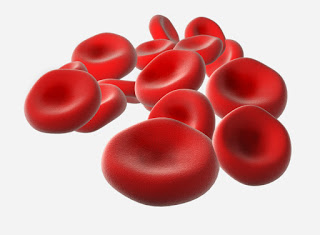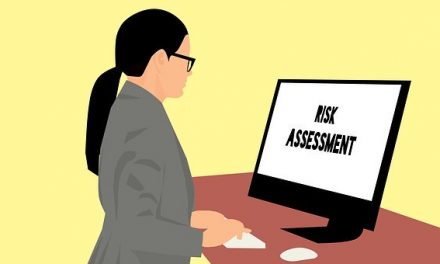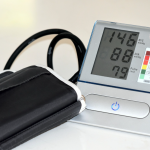GLP1 and/or GIP/GLP1 receptor agonists, used to treat obesity and diabetes, are known to slow the gastrointestinal tract. This includes semaglutide (Ozempic/Wegovy), tirzepatide (Mounjaro/Zepbound), dulaglutide (Trulicity), liraglutide (Victoza/Saxenda), exenatide (Bydureon/Byetta), and lixisenatide (Adlyxine). Since these medications have exploded in popularity and uptake in the last couple of years (particularly semaglutide and tirzepatide), case reports have emerged where patients having a surgery, or conscious sedation (eg before colonoscopy, or with sedation for an MRI), were found to have food in their stomachs, or threw up food, despite fasting per usual guidance before the procedure. The concern here is that if food is aspirated into the airway, which can happen in a sedated patient who cannot protect their own airway, aspiration pneumonia can ensue, with potentially devastating consequences.
As such, in June 2023, A Task Force of the American Society of Anesthesiologists released recommendations for elective (non emergency) procedures, recommending that GLP1 and GIP/GIP1 receptor agonists be held for a week (in the case of weekly medications) or one day (in the case of daily medication) prior. There has since been much debate around the world as to what is the best way to optimize patient safety without unnecessary disruption to their treatment and care, with some groups recommending holding these medications for even longer (eg three weeks, in the case of the Institute for Safe Medication Practices in Canada), while other multisocietal statements advise that there are no data to support stopping GLP1’s prior to elective endoscopy.
At the American Diabetes Association meeting yesterday, I was asked to speak at a panel discussion on whether or not these medications should be stopped before surgery. I was accompanied by Dr Joshi, anesthesiologist and lead author of the ASA guidance, and Dr Al Hashash, gastroenterologist who authored an excellent Rapid Clinical Practice Update on behalf of the American Gastroenterological Association. In today’s blog, I am summarizing my thoughts from the endocrinology perspective, followed by collective messages that the three of us agreed upon.
First I asked, what does it accomplish to hold treatment for 1 week (in the case of weekly medications)? Gastric emptying does not normalize after a week off of treatment; to ensure a return to baseline gastric function would actually require stopping weekly medication for about FIVE weeks, which is the time it takes for the medication to leave the body entirely (note – I am NOT suggesting that we should do this). A study found that even after stopping medication for a week, there was still a significant prevalence of retained gastric contents on ultrasound. So it is not clear that holding treatment for a week is doing anything but making the doctors feel reasssured – without basis.
For people taking these medications for control of diabetes, it is super important to have good control of sugars going into and during surgery. Elevated sugars increase the risk of perioperative infection, and very high sugars can cause metabolic/electrolyte abnormalities and dehydration. One week off of treament won’t have that much impact on blood sugars – but three weeks or five weeks certainly would. Keeping GLP1 medications on board around the time of surgery provides more stable blood sugars without causing low blood sugars, and can avoid or decrease the need for insulin around the time of surgery. Stopping treatment for two weeks or more would in many cases require help from the person’s diabetes doctor/educator to control sugars, putting an increased burden on both patients and the health care system.
For people using these medications for weight management, I have seen and heard several commentaries that we should ‘just hold treatment until the medication is completely out of the person’s system’ (ie a month for the weekly medications). Some of these commentaries seem biased and dismissive of obesity, giving the impression that obesity is less important to treat, and it ‘shouldn’t matter’ to take people off of treatment for a month. It is true that being off of treatment for a month would result in just a couple of pounds of weight regain (see semaglutide here and tirzepatide here), and systolic blood pressure would increase just a little (3-4mmHg). However, holding medication for two weeks or more will require restarting at a lower dose and retitrating back up to the person’s target dose, which may result in a repeat tour of titration-related side effects for some people. Also, some people on these treatments (for diabetes, weight management, or both) have taken a long time to work their way up on treatment, enduring gastrointestinal side effects during the dose increase, and holding treatment around surgery for a longer duration may unneccesarily destabilize their therapy. Holding weight management medication for a month could result in significant distress to the person living with obesity, feeling that their hard work is being unwound, having an unwelcome return of hunger, ‘food noise’, and cravings, and potentially causing a reemergence of side effects noted above.
So: Is there a better way than simply stopping medication for everyone?
The first thing we agreed is important to consider is: Are there people who are at higher risk of retained gastric contents/aspiration, who we should be particularly concerned about?
- People who are currently increasing their dose of GLP1-based medication are likely at higher risk, as slowing of the gut is greatest during dose escalation.
- People who have GI symtoms on treatment (eg nausea, constipation, diarrhea, heartburn, vomiting) may be predictive of having residual gastric contents.
- Evaluate whether there are other medications on board that can slow the GI tract or increase aspiration risk, such as opioids/narcotics, tricyclic antidepressants, proton pump inhibitors (used for heartburn), alcohol, nicotine, or marijuana.
- People with a history of gastroparesis may be at higher risk (and in that case, it is questionable whether a GLP1 +/- GIP receptor agonist is the best treatment for that patient in the first place).
- Poor control of blood sugars in diabetes may delay gastric emptying, which may amp up the risk further.
Practical tips that I suggested before an elective surgery or procedure requiring sedation (from the endocrinologist/obesity medicine specialist perspective):
- Elective procedures are best avoided during the dose escalation phase of these medications, as that is when the gastrointestinal tract is slowed the most.
- More extensive dietary alterations before a procedure (eg liquid diet for 24 hours) could be considered (as echoed by gastroenterologist Dr Al Hashash). Evidence to consider a pre-procedure liquid diet includes a study which found a protective effect in people having both upper and lower endoscopy. This could be related to the liquid diet and/or possibly due to other dietary changes recommended prior to colonoscopy (eg low fiber diet).
- For people with diabetes, other diabetes medications may need to be adjusted congruent with dietary changes, and/or if the surgical team elects to hold the GLP-based medication for 2 weeks or more.
On the day of the procedure, the collective suggestions from Dr Joshi and Al Hashash were:
- If the person has risk factors (as above), or the appropriate preparation was not undertaken, or the person has significant GI symptoms, a bedside gastric ultrasound (if available) can be done to look for residual gastric contents (RGC).
- If RGC are found, or gastric ultrasound is not available, then rapid sequence induction (a way to put a person under general anesthesia with safest possible airway protection), or delaying the procedure can be considered.
After the procedure/surgery, I advised that is up to the doctors treating the diabetes or obesity to:
- Ensure good blood sugar control (in people with diabetes).
- If the GLP1-based medication was stopped, remember to guide the individual on when and how to restart.
- If the GLP1-based medication was stopped for more than 2 doses, it should be restarted at a lower dose and retitrated upward.
- For people with diabetes, if the GLP1-based medication has been stopped for more than 2 doses and other diabetes medications have been increased to compensate for this, help them readjust their other diabetes medications back down as the GLP1 is worked back up.
COLLECTIVE MESSAGING from the three of us (anesthesia, gastroenterology, and endocrinology/obesity medicine): We all agreed that we are far from having conclusive answers on what to do with GLP1-based medication before sedation/anesthesia, because data just isn’t there to guide us. An optimal approach still needs to be refined and based on (future) evidence. What is clear is that we need to work as a health care team with each patient at the centre, to determine the best and safest approach for their individual situation. We all agreed on:
- avoiding elective procedures during dose escalation of GLP1-based medication
- screening for risk factors (symptoms, medications)
- considering dietary adjustments before the procedure
- using gastric ultrasound (if available) on procedure day if the person has risk factors or GI symptoms
- ensuring good blood sugar control (in people with diabetes) before, during, and after the procedure.
Disclaimer: I receive honoraria as a continuing medical education speaker and consultant from the maker of semaglutide and liraglutide (Novo Nordisk), and tirzepatide and dulagutide (Eli Lilly). I am/have been an investigator in clinical trials of semaglutide, tirzepatide, and liraglutide.
Check me out on X/twitter! @drsuepedersen
Share this blog post using your favorite social media link below!
www.drsue.ca © 2024












